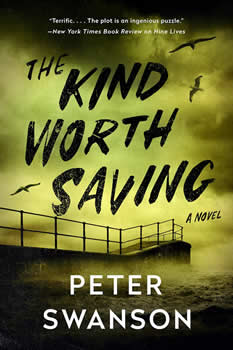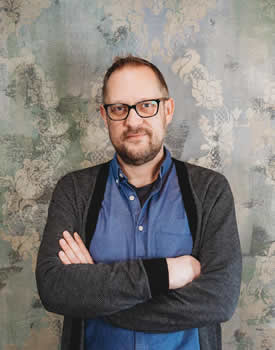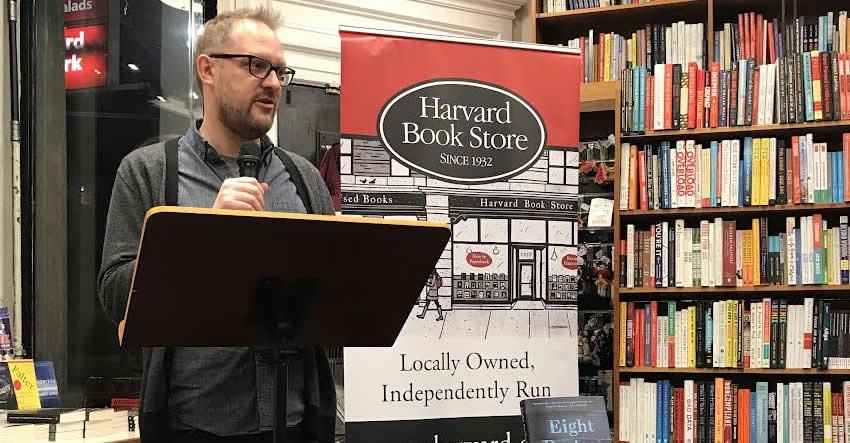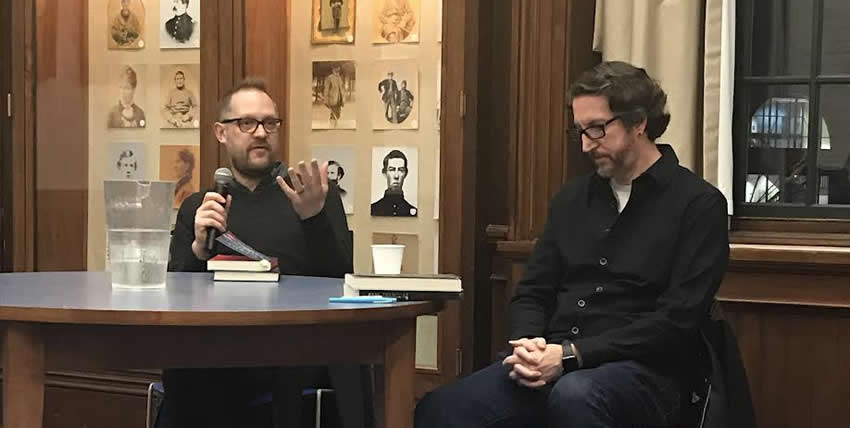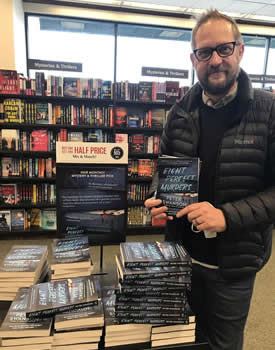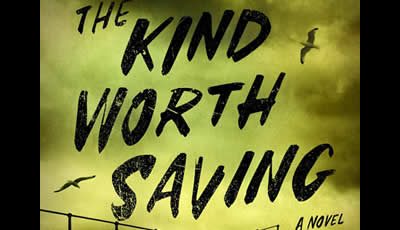

Features Up Close: Peter Swanson
Breathing New Life into Old Characters
Peter Swanson’s new book is, by his own definition, a semi-sequel. In THE KIND WORD SAVING, private instigator and former poet, Henry Kimbal, is tasked with the job a getting proof of infidelity from Joan Whalen’s husband, Richard. Always an uncomfortable job, it’s compounded by the fact that Henry knows Joan from his previous life as a school teacher, his teacher. The young Joan made him feel unease in school, and the feeling stayed when he met adult Joan. What should have been a simple case becomes much more complicated when Kimball finds two bodies in an uninhabited suburban home with a FOR SALE sign out front.
The Big Thrill caught up with Mr. Swanson to chat about the new book, the challenges it came with, and what kind of reading he enjoys the most.
What is THE KIND WORTH SAVING’s relation to your 2015 release The Kind Worth Killing?
I’m calling it a semi-sequel. There are two characters—Henry Kimball and Lily Kintner—who carry over from The Kind Worth Killing, but they’re dropped into a new story. A reader doesn’t really need to know what happened in The Kind Worth Killing to read this book.
How did the plot originate?
It originated with the characters of Joan and Richard, and also the idea of bored teenagers at a resort hotel. I actually stayed recently at a place in Maine that was once one of those hotels families used to visit for half the summer. It had a nightly dinner and entertainment and shuffle board. That sort of thing. And I saw some teenagers there who looked very bored. So, I imagined that it might be the kind of place where two teens who wouldn’t normally be friends, like a popular girl and a nerdy boy, might connect, and do some devilish things.
What can you tell us about Joan Whalen?
Joan is tenacious. We meet her as a high school girl, a star gymnast, someone who divides the world into people who are good (i.e. on her side) and people who are bad (i.e. against her). In many ways she is partly formed by the fact that her sister had childhood leukemia and she felt neglected by that. She is also, of course, a villain, as we discover quite early on. Her moral compass is definitely broken.
What can you tell us about Henri Kimball?
Kimball is a poet who became a detective and probably should have stayed a poet. He has a trauma in his past that involved a shooting incident in a classroom when he was an English teacher. He has never forgotten that moment because he froze, and that is what inevitably led to him becoming a police officer. Despite the trauma, he is a laid-back man, happiest with a drink and a book. As I said before, a born poet.
How do you flesh out your characters?
I’m always thinking about characters’ pasts, the things that happened before we the reader meet them. I think it’s crucial to character development. I often go back and think about my characters as children. This is very helpful with my villains, in particular, because it gives me some empathy for them. The worst villains, in fiction and real life, were once innocent children.
What’s your take on research and how do you do it?
I’m only a little embarrassed to say that I really don’t do research. I much prefer to let my imagination do the heavy lifting, for better or worse. Of course, as I already said, there was some accidental research for this book when I found myself at that rundown resort in Maine.
The titles to your novels all seem to be somehow based on, or a twist on, a common expression. How much fun it’s to come up with them?
I love coming up with titles, despite the fact that my editors often reject them. In this case the title was a way to reflect that this book was a sequel. In general, though, I like titles that pique the interest, titles where the reader might wonder what exactly they mean, and when their meaning might be revealed by the book.
What are you currently working on?
I’m editing a novella right now called The Christmas Guest that will come out (not surprisingly) sometime around next Christmas. I’m very excited about this book because it’s a little different than other things I’ve written. It’s a novella, for one, and it’s set at a manor house in England in the 1980s. Hopefully, it’s also very creepy.
Who are you reading these days?
I just finished all of Josephine Tey’s remarkable mysteries, so I’m sad about that. Her mystery novels are all so different, and some of them are hardly mysteries at all, at least not plot-wise. They’re all just mysterious, I suppose, like she was. Maybe I’ll start re-reading them.
- Clive Cussler’s Desolation Code by Graham Brown - December 13, 2024
- Mark Greaney by José H. Bográn (VIDEO) - June 27, 2024
- Brian Andrews & Jeffrey Wilson by José H. Bográn (Video) - May 23, 2024

